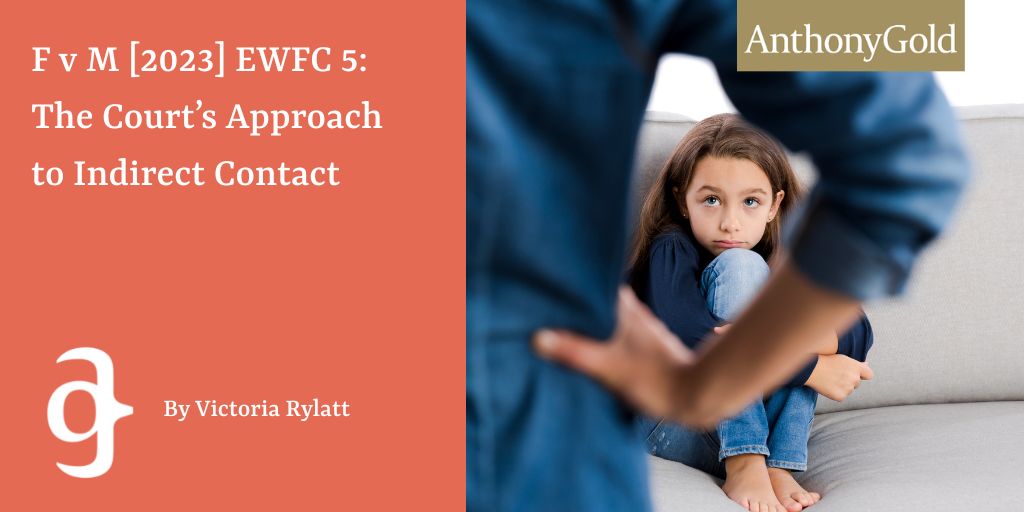F v M [2023] EWFC 5: The court’s approach to indirect contact

This blog follows on from part 1, which discussed the approach taken towards section 91(14) orders in F v M [2023] EWFC 5. This blog will explore a further issue arising from the judgment in F v M, which was whether there should be an order for indirect contact.
The Cafcass officer in this case had filed a report, within which she had concluded that it would not be possible to safeguard the children from the father’s behaviour until he had undertaken behaviour change work. However, she had recommended that there be indirect contact by way of a letter once per year to the children, which should be stored by the mother in a safe place ‘until such a time that they are able to read his letters’.
However, the Cafcass Officer told the court that if the parties had not been married, she would have been recommending revocation of the father’s parental responsibility. Mr Justice Hayden therefore queried why she would recommend indirect contact, and it struck him that ‘the Cafcass Officer had reverted to general principles, without weaving them into the particular circumstances of this deeply troubling case.’
Mr Justice Hayden concluded that the father was a ‘fantasist’ who had ‘not revealed the slightest insight into his own behaviour nor have I seen him exhibit even a scintilla of empathy for those lives he has grievously damaged.’ In light of the concerns stressed about the father, Mr Justice Hayden decided that it was impossible to identify any benefit that indirect contact might bring to the children, and in fact it was likely to be unsettling and harmful to them and their mother.
After reflection in the witness box, the Cafcass Officer decided that indirect contact would not be appropriate in this case. Mr Justice Hayden thought that, if the Cafcass Officer had recommended indirect contact, the mother would have been prepared to accept that it must have been in the best interests of the children, due to her respect for authority and determination to do right by the children.
* Disclaimer: The information on the Anthony Gold website is for general information only and reflects the position at the date of publication. It does not constitute legal advice and should not be treated as such. It is provided without any representations or warranties, express or implied.*However, Mr Justice Hayden considered this to be a ‘signal that she has not yet fully achieved the capacity to asset her own authority’ and, in his view, she should ‘follow her parental instincts.’ Despite everything that had happened, she was providing to be a very good mother and the children were doing well.
Mr Justice Hayden concluded that ‘there are occasions where it is necessary to recognise a disagreeable truth. There is, sometimes, though very rarely, a parent who has nothing to offer a child and whom the child is better off without’. An order for no indirect contact was extremely uncommon, but in this case it was found to be the right decision.

No comments